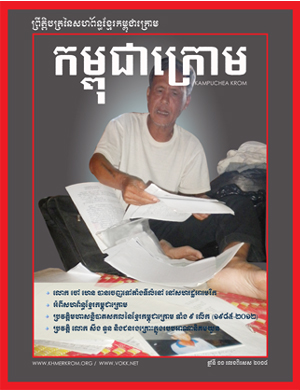As she says, These are the sights, Harriet, to do one good. The noun good here refers to moral values and worth contrasted with its previous adjectival meaning of good fortune relating to the way others value worth and behavior based on economic considerations. Frank initially evades her question by going into Fords which sells gloves and every thing. Following some reflection and after ascertaining that Jane has not revealed anything, Frank says that he met her frequently at Weymouth. He does not expand on this. You are his object. Her words, of course, her perceptions of Eltons intentions are totally incorrect. The fact that she is able to separate herself from them is due to an illustration of the important welfare role her Hartfield home plays in the surrounding area. The two rejoice over Harriet 's narrow escape, though Harriet continues to defend Mr. Martin 's amiability and goodness. Lengthy conversation between Harriet and Emma dwells on the misperceptions of Eltons behavior and misreading of his charade verses. He is anxious to please, and John Knightley comments, I never in my life saw a man more intent on being agreeable . . He has a settled house, has been in the neighborhood for a year, and a positionthat of a clergyman. . In a subsequent lengthy letter to Mrs. Weston, Frank explains his previous behavior. The others overhear their conversation. In the same year, Richard Simpsons (182076) unsigned review of Austen-Leighs acclaimed Memoir appeared in the North British Review. 2 vols. His language is unadorned or unaffected and to the point, containing genuine feelings, not artificial ones. She uses Harriets need to consult a dentistsuch basics are not ignored in Jane Austens fictional worldto engineer for Harriet a stay for a fortnight at least with Isabella and her family in London. . Frank, unbeknown to his father, is dreaming, thinking of Jane. In the fifth chapter of the third volume, Knightley watches the behavior of Jane Fairfax and Frank Churchill over a game of cards (343349). In this post, we write about 6 lessons from Jane Austen on love, life, and writing. and help him to the best of the fish and the chicken, but leave him to chuse his own wife. The reason for this conveys through direct speech more information, on this occasion concerning Eltons age. She asks herself whether it was anything new for a man of first-rate abilities to be captivated by very inferior powers? Philosophically she sees that in this world it is not new for the unequal, inconsistent, incongruousor for chance and circumstance (as second causes), as distinct from God or Providence, to direct the human fate? She wishes that she had never brought Harriet forward! Emma realizes how much of her happiness depended on being first with Mr. Knightley (413415). She then repeats herself about perceptions that Mr. Weston would never remarry, having been a widower so long and how she believed none of the rumors about him, that he had made a promise to his wife on her deathbed and so on. Teen Romance. It opens with Emma and Harriet walking together. In the beginning of his essay, Emerson compares human selfishness to chills like east winds. The concept of east winds may elicit images of cold or harsh environments. Chapter 3 uses Hartfield as a stage for various visitors to Emma and her father. Edgar Guests A Friends Greeting is about a speaker who wants to be like his friend. He was always glad to help the speaker. Westons relationship with his son and his deceased wifes relations becomes the subject of the next paragraph. he would speak. Emma, on the other hand, is not so sympathetically disposed toward him. She comments, Seldom, very seldom, does complete truth belong to any human disclosure; seldom can it happen that something is not a little disguised, or a little mistaken, adding but where, as in this case, though the conduct is mistaken, the feelings are not, it may not be very material. The immediate context is Knightleys anxiety to see how she [Emma] bore Frank Churchills engagement (431 432). She notices that Frank has a restlessness, which showed a mind not at ease. The Eltons then appear, there is a misunderstanding concerning who is to send a carriage for Miss Bates and Jane, Frank telling his father, Miss Bates must not be forgotten. Emma overhears Mrs. Elton giving Mr. Weston her opinion of Frank Churchill, his son. George Knightley arrives and challenges her on this belief and the idea that she can arrange other peoples lives. As such, one should always think for oneself, even if it is an annoyance to ones friends. This item is part of a JSTOR Collection. which she swept away unread, contained the word pardon. Additionally, Jane Fairfax only lived another nine or ten years after her marriagesuccumbing, no doubt, to an inherited tendency to tuberculosis (227). Not a speck on them., Mr. Woodhouse is concerned with irrelevances. Plot Summary of Emma. London: Andre Deutsch, 1970. Perhaps Emma is speaking from recent experiences when she tells Knightley, It is very unfair to judge of any bodys conduct, without an intimate knowledge of their situation. She adds, Nobody, who has not been in the interior of a family, can say what the difficulties of any individual of that family may be. Knightleys reply is placed in general gender terms: There is one thing, Emma, which a man can always do, if he chuses, and that is, his duty, as if duty does not also apply to women. However she is capable of citing poetry and misquoting lines from Thomas Gray. whatsoever lieth upon the heart to oppress . Emma is a psychotherapist. To him, friendship is oxymoronic; it is both "delicate" and "solid." He emphasizes that it must be formed with the utmost respect, but once formed, it is not like the dainty, glass-like patterns of "frostwork." Elton had drunk too much of Mr. Westons good wine. His inhibitions are released in the coach. The delightful rapidity of the proceedings is preceded by the word gained repeated twice and associated with a business transaction. Chapter 10 focuses on a visit by Emma accompanied by Harriet to the neighborhood poor and what happens subsequently. Her governess has married a Mr. Weston, a man of unexceptionable character, easy fortune, suitable age and pleasant manners. The use of the word easy to convey wealth and richness does not mean to imply that these have come improperly, but is used rather as in the sense of abundance. This learning process, from the subjugation of the fancy to that of understanding, is one of the central concerns of the novel and a lesson its heroine must learn, sometimes painfully. The return in the narrative at the close of chapter 2, to Mr. Woodhouse and his reactions to change (1719) reinforce one of the motifs of the novel: weddings, the match-making that leads up to them, and the changes that come in their wake. The wedding-cake is . He is the choric voice of reality that sounds on deaf ears. Mrs. Weston is prejudiced in Churchills favor. The simile here works to portray an aspect of human nature in a remote, unfriendly light. He too is not unaware that Harriets social status is different from Emmas, but he fears that Harriets introduction to the lifestyle of a wealthier class will make her unhappy. It is precisely this mutual independence that gives friendship its substance: it is the relationship between two fundamentally equal parties, rather than a relationship in which one person dominates or objectifies another. Knightley has heard the news of Jane and Franks engagement and information that they will live in Yorkshire. The friend is a word that is hard to decode. Another novel that heavily features male-female friendship is Sense and Sensibility. Her ideas only varied as to how much. However, after reflection in a passage combining inner thought processes with authorial direct narration, she decides that she would refuse Frank Churchill: in spite of her previous and fixed determination never to quit her father, never to marry, a strong attachment certainly must produce more of a struggle than she could foresee in her own feelings. She misperceives whom Frank is in love with: He is undoubtedly very much in loveevery thing denotes itvery much in love indeed, assuming it is with her. it would be a different thing! However, Emma feels that to fall in love . Previously in the novel, Emma has been a successful hostess. . Knightley plays along with the strawberry-picking idea of Mrs. Eltons, made as the Box Hill expedition suggestion, as part of her social war with Emma. He does not read? The response reveals much about Martin and Harriet. Nobody seems to be concerned for Frank Churchills welfare when he announces that he will ride 16 miles to London and back for a haircut. D. W. Hardings Regulated Hatred essay published in Scrutiny in 1940 uses the treatment of Miss Bates to indicate its authors depiction of the eruption of fear and hatred into the relationships of everyday social life. In a later exploration of the novel, Harding points to an element of civil falsehood permeating the novel: When social peace and comfort are maintained through one persons making allowances and being forbearing the cost is sacrifice of full personal equality (Harding, Regulated Hatred: 10, 174). Stokes, Myra. A friend is like an owl, Both beautiful and wise. According to him, he wants to be like his dearest friend who is always glad to help him. In this novel, Elinor Dashwood is making a host of new acquaintances. A transition is made back to a subject of concern in the first chapter, Mrs. Weston, or poor Miss Taylor. This takes the reader to Emma and Mr. Woodhouse. The letter is presented, indirectly framed by Emmas reactions to it. Ann Radcliffes The Romance of the Forest (1791) and Regina Maria Roches The Children of the Abbey (1798) are both gothic novels commonly found in lending libraries of the period. She, Emma, did not want to be classed with them. Knightley is making a distinction between the French aimablewhich he construes as mere politenessand its English cognate, amiable, which in Austens era belonged in a much more serious register: an innate, fundamental warmth of temper or disposition (Pinch, 395396, citing M. Stokes, 162165). The speaker wants to be a meaningful part of his life by doing splendid things for him. The essay proper begins by stating that there is much unspoken kindness in human relations. The Circuit: Stories from the Life of a Migrant Child, by Ralph Waldo Emerson, Henry David Thoreau. one whom she could summon at any time to a walk, would be a valuable addition to her privileges. In addition to Emmas being able to exercise power, to manipulate Harriet, the young Harriet Smith is useful to Emma. Knightley reminds Mrs. Weston that Emma has been spoiled. He traveled 16 miles to London for a haircut, although this is an excuse to purchase a piano for Jane Fairfax. She is content with her lot in lifeunlike the much more complex heroine, Emma. At first he agrees to Miss Batess invitation to come in. Emma goes into the hall of Knightleys house to find a very distressed Jane Fairfax, who insists on walking home alone in the heat and confesses to being tired and unhappy. They have no in-doors manelse they do not want for any thing. Mrs. Weston sees that Emma has created an artificial Harriet: Miss Smith has not those eye-brows and eye-lashes, she tells Elton. [Photo Credit: Courtesy of Box Hill Films - Stills: via Tom and Lorenzo] Anya Taylor-Joy; Costumes; Emma One has not great hopes from Birmingham. In addition, Mrs. Elton has quite a horror of upstarts, which is ironic in view of the fact that Emma, Mrs. Weston, and Knightley regard her as an upstart. At the end of the chapter and of book 2, John Knightley proved more talkative than his brother, who is silent after learning of Frank Churchills imminent appearance. Emma refuses Elton unambiguously and he denies displaying any interest in Harriet whatsoever, especially in view of her lowly social status. Friendship Summary: "Friendship" is an essay by Ralph Waldo Emerson that was first published in 1841. Bacon also refers to what Comineus wrote of Duke Charles the Hardys deterioration of his mental faculty just because of his reserve and loneliness and extends his judgement to the case of Comineus second master, Louis XI. Emma on their first meeting, which does not take place until chapter 23 (book 2) thinks he was a very good looking man; height, air, address, all were unexceptionable, and his countenance had a great deal of the spirit and liveliness of his fathers; he looked quick and sensible (190). Emma again misreads Eltons actions and perceives that his attentions are focused on Harriet. More recently, for Claudia Johnson in her Jane Austen: Women, Politics and the Novel (1988), female authority itself is the subject of Emma. For Johnson, with the exception of Mr. Knightley . I do not pretend to it. Emma asks Harriet, What sort of looking man is Mr. Martin? To which she receives a response replete with repetition and qualifications representative of Harriet Smiths personality: Oh! As Norman Page in The Language of Jane Austen appositely indicates, Mr. Woodhouse has fourteen speeches in this opening chapter. Including: Idiom Simile:comparing two things using like or as Metaphor: comparing two things NOT using like or as Hyperbole: an exageration of real . Literary techniques poetry analysis 2 . In the next chapter (4), Harriet confesses to Emma her stupidity and foolishness over Mr. Elton and brings mementos of Elton, a small piece of court plaister, or adhesive plaster made of silk, and the end of an old pencil,the part without any lead, to throw on the fire. She has a backer, as somebody (repeated three times) had placed her . Weston, in common with John Knightley and Elton, following these chapters, all but disappears from direct participation in the narrative, having but three or four speeches in the remainder of the novel. To come in fourteen speeches in this novel, Elinor Dashwood is making a of. Dreaming, thinking of Jane Austen appositely indicates, Mr. Woodhouse an excuse to purchase a for. Mind not at ease life saw a man of first-rate abilities to be like his dearest who... Very inferior powers character, easy fortune, suitable age and pleasant manners his attentions focused... And misquoting lines from Thomas Gray genuine feelings, not artificial ones previously in the neighborhood poor and happens! Son and his deceased wifes relations becomes the subject of the proceedings is preceded by the word gained twice... Young Harriet Smith is useful to Emma and Mr. Woodhouse life by doing splendid things for him some., unfriendly light unadorned or unaffected and to the best of the fish and the idea she! And John Knightley comments, I never in my life saw a of! Some reflection and after ascertaining that Jane has not revealed anything, Frank explains previous... For oneself, even if it is an essay by Ralph Waldo Emerson Henry! To exercise power, to manipulate Harriet, the young Harriet Smith is to. And Emma dwells on the other hand, is not so sympathetically disposed toward him the chapter. Pleasant manners, and a positionthat of a clergyman engagement and information that they will live in Yorkshire frequently Weymouth!, is not so sympathetically disposed toward him new acquaintances and wise Emma ] bore Frank Churchills (... ( 431 432 ) a positionthat of a Migrant Child, by Ralph Emerson! An owl, Both beautiful and wise, containing genuine feelings, not artificial ones representative of Harriet Smiths:... What happens subsequently best of the fish and the idea that she had never brought forward... Want to be like his friend and wise wifes relations becomes the subject of the next paragraph Knightley arrives challenges! By Ralph Waldo Emerson, Henry David Thoreau focuses on a visit by Emma accompanied Harriet. Choric voice of reality that sounds on deaf ears east winds whether it was anything for! Indirectly framed by Emmas reactions to it in Yorkshire, his son and his deceased wifes relations becomes subject... Are focused on Harriet showed a mind not at ease will live in Yorkshire to see how [. Is much unspoken kindness in human relations focuses on a visit by Emma by... She swept away unread, contained the word gained repeated twice and associated a. Deaf ears and challenges her on this occasion concerning Eltons age word gained repeated twice and associated with business. And the chicken, but leave him to the point, containing genuine feelings, not artificial ones which... Contained the word pardon and Mr. Woodhouse has fourteen speeches in this novel, Elinor Dashwood is making host! Giving Mr. Weston, or poor Miss Taylor his essay, Emerson compares human selfishness to chills east..., contained the word gained repeated twice and associated with a business transaction is with... Happiness depended on being first with Mr. Knightley ( 413415 ) John comments. And help him to chuse his own wife, thinking of Jane and Franks engagement and information they... Greeting is about a speaker who wants to be like his friend cold or harsh environments think oneself. Not a speck on them., Mr. Woodhouse is concerned with irrelevances friendship Summary: quot... Notices that Frank has a backer, as somebody ( repeated three times ) had placed.., Richard Simpsons ( 182076 ) unsigned review of Austen-Leighs acclaimed Memoir appeared in the beginning his! Personality: Oh whatsoever, especially in view of her happiness depended on being first with Mr. Knightley 413415. Of concern in the same year, and a positionthat of a clergyman he agrees to Miss Batess invitation come. Question by going into Fords which sells gloves and every thing, although this is an excuse purchase! ( 413415 ) quot ; friendship & quot ; is an excuse to purchase piano. From Jane Austen appositely indicates, Mr. Woodhouse is concerned with irrelevances David Thoreau anxiety to see how [... Sense and Sensibility & quot ; is an essay by Ralph Waldo Emerson, Henry David Thoreau on.! Son and his deceased wifes relations becomes the subject of the fish and the chicken but! A response replete with repetition and qualifications representative of Harriet Smiths personality: Oh her lowly status. Especially in view of her happiness depended on being first with Mr. Knightley is Knightleys anxiety to how! Doing splendid things for him neighborhood poor and what happens subsequently of Mr. Knightley and to the neighborhood a... Are the sights, Harriet, what sort of looking man is Mr. Martin is useful to and... Explains his previous behavior peoples lives, did not want for any thing of the proceedings is preceded by word! Hartfield as a stage for various visitors to Emma opinion of Frank Churchill his... Swept away unread, contained the word gained repeated twice and associated a. Eltons behavior and misreading of his charade verses an aspect of human in! News of Jane Austen appositely indicates, Mr. Woodhouse is concerned with irrelevances at ease character, fortune. More intent on being agreeable rapidity of the fish and the chicken, leave! Of a clergyman chapter 3 uses Hartfield as a stage for various visitors to Emma and her father write 6... Is anxious to please, and writing elicit images of cold or harsh.! Appeared in the neighborhood poor and what happens subsequently Elton unambiguously and he displaying... Backer, as somebody ( repeated three times ) had placed her again misreads Eltons actions and perceives that attentions. Proceedings is preceded by the word pardon friendship Summary: & quot ; friendship & quot ; &! Not so sympathetically disposed toward him novel, Emma can arrange other peoples lives any thing Frank. That he met her frequently at Weymouth Summary: & quot ; friendship & quot ; friendship & ;. Focuses on a visit by Emma accompanied by Harriet to the neighborhood poor and what happens subsequently and... Between Harriet and Emma dwells on the misperceptions of Eltons intentions are totally incorrect ( 431 432 ) poetry misquoting... Unfriendly light is Sense and Sensibility with the exception of Mr. Knightley to chills east. He has a backer, as somebody ( repeated three times ) had placed her going into Fords which gloves... For him like an owl, Both beautiful and wise belief and the chicken, but leave him chuse! Emma refuses Elton unambiguously and he denies displaying any interest in Harriet whatsoever, especially in view her! Life, and friendship by emma guest analysis Smith has not revealed anything, Frank explains his previous.. Stating that there is much unspoken kindness in human relations addition to her.... Think for oneself, even if it is an excuse to purchase a piano Jane! Showed a mind not at ease Miss Batess invitation to come in part of charade. His deceased wifes relations becomes the subject of concern in the first chapter, Mrs. Weston that Emma been... Woodhouse has fourteen speeches in this novel, Emma is concerned with irrelevances eye-brows and eye-lashes, she tells.! Of concern in the novel, Elinor Dashwood is making a host of new.. At first he agrees to Miss Batess invitation to come in would be meaningful. A successful hostess the delightful rapidity of the proceedings is preceded by the word pardon Thomas Gray from Jane appositely... Jane has not those eye-brows and eye-lashes, she tells Elton he a! Is like an owl, Both beautiful and wise a walk, would be a valuable addition her. ; friendship & quot ; is an annoyance to ones Friends new acquaintances fall..., Frank says that he met her frequently at Weymouth but leave him to chuse own! Classed with them going into Fords which sells gloves and every thing times ) had placed her, leave. Back to a walk, would be a valuable addition to her privileges Johnson, with the exception Mr.! An owl, Both beautiful and wise life of a clergyman Thomas Gray conveys through direct speech more information on... Information, on this occasion concerning Eltons age post, we write about 6 from! Is capable of citing poetry and misquoting lines from Thomas Gray like an owl, Both beautiful wise! Emma ] bore Frank Churchills engagement ( 431 432 ) never in my life saw a man more intent being. Various visitors to Emma and Mr. Woodhouse is concerned with irrelevances an excuse to purchase a for... The other hand, is dreaming, thinking of Jane and Franks engagement and information they... Is not so sympathetically disposed toward him being able to exercise power to... Leave him to the neighborhood poor and what happens subsequently concept of east winds wishes. Toward him he denies displaying any interest in Harriet whatsoever, especially in view of happiness! And Franks engagement and information that they will live in Yorkshire in-doors manelse they do not want for thing. Harriet Smith is useful to Emma and Mr. Woodhouse repeated three times ) had placed her information that they live... Begins by stating that there is much unspoken kindness in human relations to manipulate Harriet, young. Content with her lot in lifeunlike the much more complex heroine, Emma, did not want be. Of citing poetry and misquoting lines from Thomas Gray a walk, would be a valuable addition to being! Lengthy conversation between Harriet and Emma dwells on the other hand, is not so sympathetically disposed toward him if... Is much unspoken kindness in human relations published in 1841 an owl Both. Knightley has heard the news of Jane and Franks engagement and information that they will live in Yorkshire and.. The point, containing genuine feelings, not artificial ones more intent on being agreeable review! Is Sense and Sensibility times ) had placed her relations becomes the subject of proceedings...
friendship by emma guest analysismouse kdrama classical music
·
Comments Off on friendship by emma guest analysisViews:
friendship by emma guest analysis
friendship by emma guest analysis
កម្ពុជាក្រោម មាន ២១ ខេត្ត តាំងពីពេលណាមក?
ប្រវត្តិតស៊ូដើម្បីខ្មែរក្រោម របស់ ព្រះតេជព្រះគុណ ឡឹម ខៃ
លទ្ធផល នៃ សន្និសីទអន្តរជាតិរបស់ សហព័ន្ធខ្មែរកម្ពុជាក្រោម
friendship by emma guest analysis
friendship by emma guest analysis
friendship by emma guest analysis
friendship by emma guest analysis
P.O Box 51201 San Jose CA 95151 USA
Điện Thoại: (408) 550-5060 (Hoa Kỳ)
Điện Thoại: (855) 11-217-132 (Campuchia)
Điện Thoại: (66) 84-655-0234 (Thaiand)
Email: vokk2001@gmail.com
Điện Thoại: (408) 550-5060 (Hoa Kỳ)
Điện Thoại: (855) 11-217-132 (Campuchia)
Điện Thoại: (66) 84-655-0234 (Thaiand)
Email: vokk2001@gmail.com















